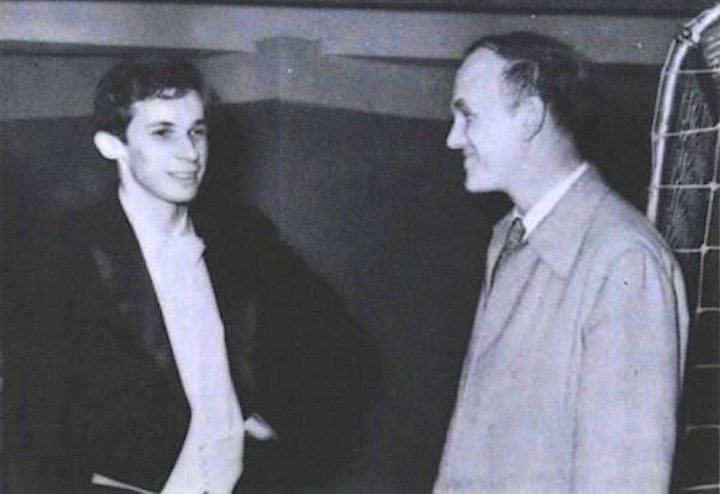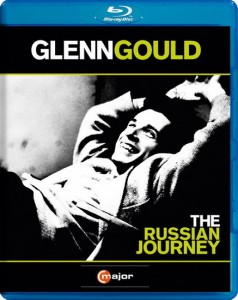
Glenn Gould: The Russian Journey is not a new documentary film, but its recent re-release by C Major Entertainment is a brilliant reminder of how insightful it can be to see someone familiar through other people’s eyes.
- Classical Music 101: What Does A Conductor Do? - June 17, 2019
- Classical Music 101 | What Does Period Instrument Mean? - May 6, 2019
- CLASSICAL MUSIC 101 | What Does It Mean To Be In Tune? - April 23, 2019
 Toronto filmmaker Yosif Feyginberg completed his hour-long documentary in 2002, long enough ago to be able to include many great Russian artists, including Mstislav Rostropovich, who had witnessed how a 24-year-old Gould turned the musical worlds of Moscow and St Petersburg (called Leningrad at the time) upside down in May, 1957.
Toronto filmmaker Yosif Feyginberg completed his hour-long documentary in 2002, long enough ago to be able to include many great Russian artists, including Mstislav Rostropovich, who had witnessed how a 24-year-old Gould turned the musical worlds of Moscow and St Petersburg (called Leningrad at the time) upside down in May, 1957.
Not even 60 years later, it’s impossible for a Torontonian to imagine a classical artist creating such a sensation that people would drop everything they’re doing in order to run to a concert hall.
At the first concert in Moscow, Gould walked out on stage to face a hall that was, at best, half full. No one in the closed world of Soviet society had heard of Gould or had listened to the Columbia recording of the Goldberg Variations released two years earlier.
Those who bought tickets came out of curiosity, because he was the first Canadian musician to perform in the Soviet Union.
The audience was dumbstruck by what they heard. They dashed home and to every available phone at intermission to call family and friends, to insist that they come to the hall immediately. By the end of the extra-long intermission, every seat was full and people are standing at the back.
Sviatoslav Richter, the greatest of many great 20th century Russian pianists, applauded the longest and absolutely had to meet Gould. Richter confessed to a friend that he could play Bach like Gould, too, but didn’t because he would have to practise too hard.
That was just the first night of a visit that turned Gould from an unknown visitor to a phenomenon without any of the normal trappings of marketing and spin long used by PR people in the West.
The beauty of Feyginberg’s documentary is in how he allows us to experience Gould from the point of view of astonished listeners. Along the way, we discover that it wasn’t just the pianist’s unorthodox playing style that caused the fuss, but the fact that he arrived with repertoire that people in the Soviet Union were not allowed to perform or listen to.
Bach was banned by Soviet officialdom because his music was thought to be laden with spiritual messages unacceptable in an officially, aggressively atheist state. Gould also gave Moscovites and St Petersburgers their first taste of the Second or New Viennese School — the atonal music of Arnold Schoenberg and his acolytes frowned upon as “formalist” by Soviet Russia.
Communist officials were not pleased, but Gould became such a phenomenon so quickly that they felt powerless to stop him.
The Russian Journey is an engaging hour that goes by much too quickly. It would have been nice to get more audio from the actual concerts and lectures, but no one had prepared in advance for what turned out to be a momentous visit by an eccentric and supremely talented Torontonian.
You’ll find the details on this made-for-TV documentary here.
Right after his first concert, Gould was invited to give a lecture at the Moscow Conservatory. Fortunately, someone had the foresight to record it:
John Terauds
- Classical Music 101: What Does A Conductor Do? - June 17, 2019
- Classical Music 101 | What Does Period Instrument Mean? - May 6, 2019
- CLASSICAL MUSIC 101 | What Does It Mean To Be In Tune? - April 23, 2019



